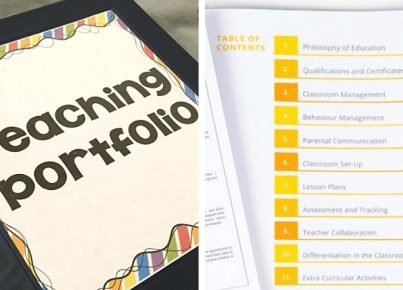Professional development (PD) is essential for educators to remain current in their field and enhance their skills. Unfortunately, not all PD opportunities are created equal. In this article, we will explore ten kinds of professional development that teachers actually want and find valuable in their practice.
1. Collaborative Learning
Teachers thrive when they learn and work together with their peers. Collaborative learning allows educators to exchange ideas, strategies, and experiences, boosting their overall growth and job satisfaction.
2. Classroom Observations
Classroom observations provide teachers with the opportunity to watch each other in action and learn firsthand from one another’s techniques. This informal way of learning can offer valuable insights and help improve teaching methods.
3. Technology Integration
With the rapid advancements in technology, it’s crucial that educators stay up-to-date with the latest tools and resources. PD opportunities that focus on technology integration help teachers leverage these new tools effectively in their classrooms to engage students and enhance learning.
4. Personalized PD
One-size-fits-all PD often falls short of meeting individual needs. Teachers appreciate tailored professional development programs addressing particular areas they wish to improve upon or explore in-depth, such as classroom management, curriculum design, or assessment strategies.
5. Subject-specific Training
Subject-specific training offers a deep dive into a teacher’s area of expertise. This type of PD provides them with new perspectives, advanced teaching strategies, and techniques to improve student outcomes across various subjects such as math, science, language arts or social studies.
6. Culturally Responsive Teaching
As classrooms become more diverse, teachers must adapt by incorporating culturally responsive teaching practices. PD programs on this topic equip educators with the knowledge and tools needed to create inclusive educational environments that celebrate and respect different cultures.
7. Growth Mindset Training
Fostering a growth mindset among students is vital for academic success. Through growth mindset training, teachers learn how to identify fixed mindsets, reframe challenges, and promote a culture of learning in their classrooms.
8. Emotional Intelligence and Mental Health
Mental health and emotional intelligence are integral aspects of a student’s wellbeing. PD workshops focused on this area provide teachers with strategies to support their students in developing essential social and emotional skills.
9. Inquiry-based Learning
Inquiry-based learning encourages critical thinking, creativity, and problem-solving – essential 21st-century skills. Teachers benefit from professional development that helps them design students-led, inquiry-driven learning experiences.
10. Networking and Conferences
Attending educational conferences and events can be a source of motivation, inspiration, and beneficial connections for teachers. Networking with fellow educators exposes them to new ideas, resources, best practices, and opportunities for collaboration.
As education evolves in the 21st century, professional development must remain a top priority for all teachers. By offering meaningful opportunities in these ten categories, we can ensure educators have the skills they need to navigate today’s complex and ever-changing educational landscape efficiently.



